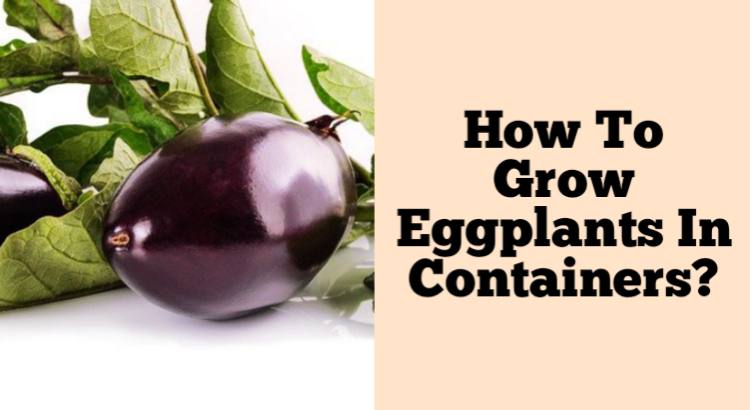Eggplants are a delicious and versatile vegetable that can be grown in containers.
They grow well in warm climates, but can also be grown in temperate areas if you choose the right variety. Eggplants can be grown from seeds or from seedlings, and they can be grown in containers of all shapes and sizes.
Container gardening is a great way to grow eggplants, as it takes up less space and is perfect for small gardens. It is also a great way to grow eggplants if you don’t have a lot of experience gardening.
In this article, we will provide tips on how to grow eggplants in containers, including the best variety of eggplant to choose, what type of soil to use, and how to care for your plants.
Eggplant Basics
Eggplants are a popular garden vegetable, but they can also be grown in containers.
Eggplants prefer warm weather and can be grown in most parts of the country. They need a sunny location and well-drained soil.
The best way to grow eggplants in containers is to start with a small pot and then move up to a larger pot as the plant grows. Be sure to give the plant plenty of water and fertilize it every two weeks.
Container Requirements
To grow eggplants in containers, you will need a pot or container that is at least 12 inches deep and 12 inches wide. The container should have drainage holes at the bottom so that the soil can drain properly.
You will also need to add compost or potting mix to the soil to provide enough nutrients for the plants. Eggplants prefer a soil pH of 6.0-6.8, so you may need to adjust the pH level of your soil accordingly.
Make sure to place the container in a sunny location, and water regularly to keep the soil moist.
Soil Preparation
Eggplants like fertile, well-draining soil.
Before you start planting, you need to prepare the soil. Eggplants likes fertile, well-draining soil. Amend the soil with compost or manure to give it some extra nutrients. If your soil is heavy or clay-like, add some sand or perlite to lighten it up.
Once the soil is ready, plant the eggplants in containers that are at least 12 inches deep and 8 inches wide.
Sowing Seeds or Transplanting
When growing eggplants in containers, you have two options: you can sow the seeds directly in the container, or you can transplant seedlings into the container. If you’re new to gardening, its better to start with transplanted seedlings. It’s a little easier than sowing the seeds directly, and you’ll have a head start on your harvest.
Caring for Your Eggplant Container Garden
Now that you’ve decided to grow eggplants in containers, it’s important to know how to care for them. Here are a few tips to help you get started:
1. Make sure your container is big enough. Eggplants need plenty of space to grow, so choose a container that is at least 12 inches wide and 12 inches deep.
2. Use a good quality potting mix. Eggplants like rich, well-drained soil, so make sure your potting mix is high in organic matter.
3. Water regularly. Eggplants need plenty of water, especially when they’re fruiting. Make sure the soil is moist but not soggy, and water twice a day if needed.
4. Feed your plants regularly. Eggplants need lots of nitrogen, phosphorus, and potassium to grow well. Feed them every two weeks with a balanced fertilizer or compost tea.
5. Protect them from pests and diseases. Eggplants are prone to pests and diseases, so keep an eye on them and treat any problems as soon as they arise.
Eggplant Pests and Diseases
Eggplants are beautiful plants that can be grown in containers, but they are also susceptible to pests and diseases.
The most common pests are aphids and spider mites. These tiny pests can cause a lot of damage to your plants, so it’s important to keep a close eye on them and take action if necessary.
The most common diseases are bacterial wilt, gray mold, and Verticillium wilting. All of these diseases can be deadly to your plants, so it’s important to know the signs and take action quickly if you see any problems.
Eggplant Varieties
Eggplants come in all shapes and sizes, so it’s important to choose the right variety for your container garden. Some of the most popular varieties include:
-Black Beauty: This is a classic eggplant that is dark purple and has a smooth skin. It is a prolific producer and can be grown both in containers and in the garden.
-Chinese Long: This eggplant is long and slender, with a light purple skin. It is a good choice for container gardens, since it does not grow very tall.
-Italian Purple: This eggplant is dark purple, with a smooth skin. It is a prolific producer and can be grown both in containers and in the garden.
-Japanese Purple: This eggplant is dark purple, with a bumpy skin. It is a prolific producer and can be grown both in containers and in the garden.
Conclusion
Eggplants are a delicious and nutritious vegetable that can be grown in containers. All you need is a sunny spot and a few basic supplies.
Eggplants grow best in warm weather, so make sure you plant them in a spot that will get plenty of sun. Containers are a great option for gardeners who live in apartments or don’t have a lot of space.
Eggplants need plenty of water, so make sure to water them regularly. You can also fertilize them with organic compost or a balanced fertilizer.
With a little bit of care, you can grow delicious eggplants in containers right on your porch or patio.

